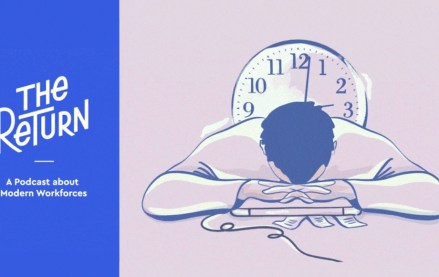
We are all guilty of telling little white lies here and there to make things go our way or to avoid confrontation. And if anyone knows about sugar-coating the truth to avoid uncomfortable situations, it’s agencies.
When you have to keep clients happy all of the time, sometimes a little white lie goes a long way. Digiday asked a handful of agency folks — who, for obvious reasons, will remain anonymous — to share some of the most common white lies they tell clients.
So brands, next time you are in a meeting or on a call with your agency and you hear one of these little half-truths, you’ll know to probe a bit further for the real answer.
The Lie: “That’s a great idea!”
The Truth: “Sometimes it’s tough telling a client that their idea stinks,” said one anonymous agency creative. “We’ll either have to improve their idea or come up with a much better one.”
The Lie: “We can make that budget work.”
The Truth: “Sometimes budgets suck but the project is cool and we really wanna make the work,” said the anonymous creative.
The Lie: “Yes all the agencies are working really well together – we’re a fully integrated team.”
The Truth: “Most of the time the various agencies — planning, media, creative — don’t like each other and have no idea what each other is doing,” admitted an agency employee.

The Lie: “Your account is the agency’s No. 1 priority.”
The Truth: “We’d say that to all of our clients,” said an agency staffer.
The Lie: “We need a little more time to make it just right. It’s almost there, and when it’s done you will really like it.”
The Truth: “This one is used so many times for so many reasons,” explained the ad creative. “Either it stinks and we have started over, everyone likes it except management and we need to start over, or everyone is working on other clients’ stuff and at the moment, yours is less important.”
The Lie: “We’re really excited to hear your feedback!”
The Truth: The subtext that comes with that, as one creative explained, is, “We’re also fearful of you killing our ideas.”
The Lie: “Hell, yes, we can [insert buzz word].”
The Truth: “Pretty much the typical ad agency response to any capability questions,” said an agency exec. “We might not know then and there how to do it, but we’ll sure as hell figure that out later.”

The Lie: “If you award us the business, this is the team that will be working with you.”
The Truth: As an ad creative explained, in reality the agency has no idea who will actually be working on the account. “What we can say with certainty is this: It’s not going to be the people you see here in this room presenting to you — each of them is already committed to three other things,” said the creative. “You don’t have teams of people just sitting around waiting to be assigned stuff, do you? Of course not. That would be suicidal for your business. What makes you think we have that luxury? You’re not offering us nearly enough money. Maybe we’ll hire a few people to work on this account, but more likely we’ll squeeze even more out of our already overtaxed juniors.”
The Lie: “We’re integrated.”
The Truth: “Agencies will always say that they can do everything, but, in fact, they often times cannot,” said one digital agency guy. “They will especially try to talk up digital.”
The Lie: Every case study.
The Truth: “OK, our case studies aren’t exactly lies, but would we stand behind them as God’s honest truth, like under oath? We’re trying to tell the most compelling story we can in 90 seconds, recognizing that you’re going to be checking your email and doing maybe three other things while pretending to watch it,” said the creative. “So cut us a little slack, but don’t ask us too many questions about the project the case study is about, because it’s barely an actual thing that exists in the world — I mean, it’s real to us. That counts, right? This is how we wanted to make it, if only we had been given the chance. Hey, the iPhone was a barely functioning prototype when Steve Jobs unveiled it to the world. This is kind of the same thing. Kind of.”

The Lie: “We build mobile.”
The Truth: “It’s like the day when everyone wanted a website. Everyone still thinks they ‘need an app’ or something on mobile,” said the digital agency staffer. “Everyone will say they know how to build apps — C-Suite executives get all hot and bothered about apps.”
The Lie: “We’ll integrate with your IT group.”
The Truth: “Agencies never understand how to integrate with their client’s IT group when it comes to something like CRM or booking in the case of a hotel, for example,” admitted the digital ad guy. “The IT group at Brand X is the last to know about a marketing objective, and when you spring it on them, they are recalcitrant to get it done and it’s an uphill battle.”
More in Marketing

With the rise of the chief AI officer, it’s time to examine ‘czar’ culture
Even if it’s a familiar pattern — hot new thing, new C-Suite exec to tackle said thing, a few years go by and that C-Suite position no longer exists as everyone is now doing said thing (or it was a fad that has since faded away) — does it make sense for businesses to continue to appoint new czars with every new trend?

Why Cava’s bid for brand awareness means prioritizing streaming ads
Fast-casual restaurant chain Cava has been in growth mode over the past year and is leaning into streaming ads in an effort to boost brand awareness.

A history of middle manager stress: The Return podcast, season 3, episode 1
In episode one, McKinsey partner Emily Field tells us more about why middle management is critically important to the workforce.





